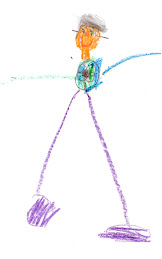Do
you recall your history of the settling of America? Remember how you learned
that one of the worst things the white man brought to these shores was smallpox
and measles? Indian villages were decimated when either disease struck. And
measles was just about as bad as smallpox in its effect
on native populations.
Measles
was never a disease to discount, even for Europeans who had been exposed to it
most of their lives. And it wasn’t any fun for a kid in 1943 either. Because of
the warning that it could harm a child’s eyes, the sick room was
kept dark, making reading or playing nearly impossible.
Measles
caused permanent deafness in countless people, and the complications from other
diseases made it a very real threat to survival.
I
remember when the measles vaccine was announced. It was
almost too good to be true. Each of my four children were vaccinated, and it
was a relief to know that they would never get the disease.
Fast
forward to 2014. For several years there have periodically been scary articles
published that the measles vaccine causes harm to some children. The result is that thousands of parents decided
to opt out of the vaccination program. So now we have thousands of people who
are completely unprotected.
Measles
is a highly contagious respiratory disease caused by a virus named
rubella. The symptoms are fever, runny nose, cough and a rash all over the
body. Very often a sick child will also get an ear infection or pneumonia, and
then they are very sick.
If
measles had been stamped out all over the world, similar to what has
happened to polio, there would be no problem. But the rubella virus is alive and
well in many of the underdeveloped nations of the world.
From January 1 to April 20 more than 26,000 suspected and 6,000
confirmed cases of measles have been reported in the
Philippines. As of May 23, 22 U.S. travelers, mostly unvaccinated, who returned
from the Philippines have become sick with measles.
Since measles is a virus, antibiotics won’t cure the disease, and the
ailment has been rare enough in the past 25 years that
doctors often don’t recognize it.
The Centers for Disease Control and Prevention (CDC) now recommends
that travelers to the Philippines protect themselves by making sure they are
vaccinated against measles, particularly infants 6 -
11 months of age (1 dose of measles vaccine) and children 12 months or older (2
doses of measles vaccine). Likewise, adults should be vaccinated before any
foreign travel.
Isn’t it interesting how people get
complacent? No one they know has gotten sick with measles, so it must be safe
to leave their children (and often themselves) unprotected. In this case
ignorance is definitely NOT bliss.

